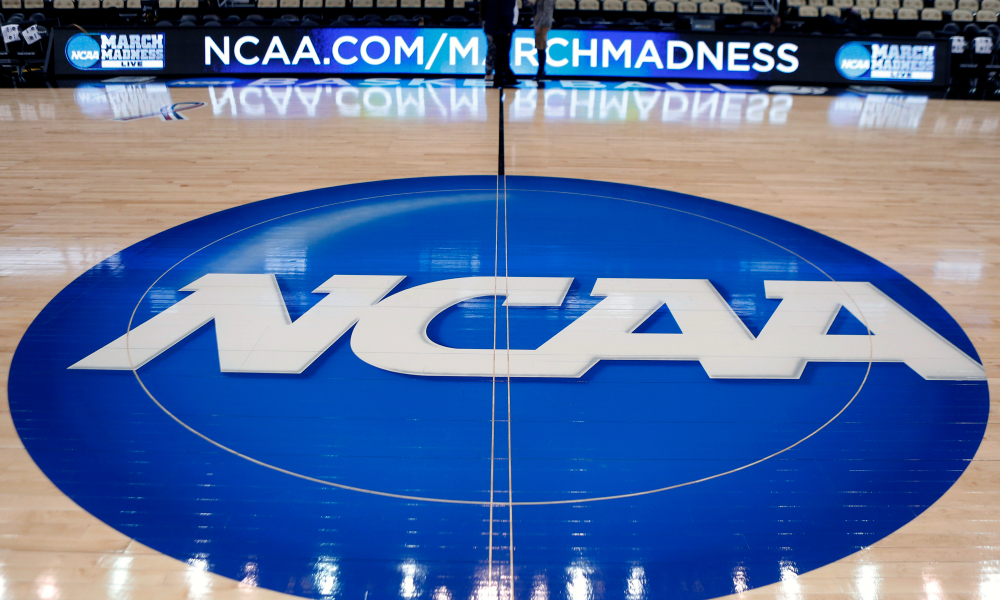
The NCAA has amended its disciplinary policy for athletes who violate its rules against sports betting.
A series of recent controversies has brought the issue of NCAA participants engaging in sports gambling, even to the point of an SEC baseball coach being fired amid a betting scandal. Anyone involved with NCAA athletics is prohibited from engaging in any form of sports betting whatsoever.
However, the NCAA has changed how it will deal with college athletes found violating its gambling policies.
Alex Ricker-Gilbert, athletics director at Jacksonville and chair of the DI Legislative Committee, claims that these new reinstatement guidelines are an adjustment to better meet the times:
“These new guidelines modernize penalties for college athletes at a time when sports wagering has been legalized in dozens of states and is easily accessible nationwide with online betting platforms,” he said in a statement. “While sports wagering by college athletes is still a concern — particularly as we remain committed to preserving the integrity of competition in college sports — consideration of mitigating factors is appropriate as staff prescribe penalties for young people who have made mistakes in this space.”
The organization adds that these new reinstatement rules are a step down from a more “one size fits all” punishment system that was previously in place.
“Previous reinstatement guidelines, which were implemented prior to the broader legalization of sports wagering, stipulated that in most cases, student-athletes who wagered on sports at any level would lose one full season of collegiate eligibility,” the press release from the NCAA adds.
The rules will apply to any gambling infractions reported on or after May 2, per the NCAA.
What exactly do these amended reinstatement policies entail? Let’s take a look.
Athletes could face permanent bans for actions that directly impact games
The harshest NCAA punishments will go to those who do anything in their sport to influence or partake any sort of gambling activities.
They could face a lifetime ban from NCAA participation, per the new rules.
“Student-athletes who engage in activities to influence the outcomes of their own games or knowingly provide information to individuals involved in sports betting activities will potentially face permanent loss of collegiate eligibility in all sports,” the new rule reads. “This would also apply to student-athletes who wager on their own games or on other sports at their own schools.”
Wagering on your sport at another school could result in a half-season ban
One rule change could lessen the punishment for those betting on teams they are not directly involved with, even if it’s the sport they compete in.
An athlete betting on the sport they’re involved with at another school could result in a half-season ban and required education on NCAA gambling rules.
“If a student-athlete wagers on their own sport at another school, education on sports wagering rules and prevention will be required as a condition of reinstatement, and the loss of 50% of one season of eligibility will be considered,” the rule states.
Education and partial suspensions follow those who just bet on general sports
Perhaps the most significant change would come for NCAA athletes who just bet on sports in a general sense, ones not related to their field of competition or at the professional level.
The NCAA said that it will assess how much money was bet on that sport, with the higher dollar amount wagered determining what level of suspension could be given for a single season.
“For all other wagering-related violations (e.g., wagering on professional sports), cumulative dollar value of the wagers will be taken into consideration with the following terms for reinstatement,” the rules read.
The NCAA said that dollar amounts wagered/possible suspensions will stack up like this, per the release:
-
- $200 or less: sports wagering rules and prevention education.
- $201-$500: loss of 10% of a season of eligibility, plus rules and prevention education.
- $501-$800: loss of 20% of a season of eligibility, plus rules and prevention education.
- Greater than $800: loss of 30% of a season of eligibility, plus rules and prevention education.
- For cumulative wagering activities that greatly exceed $800, NCAA reinstatement staff are directed to consider whether additional loss of eligibility, including permanent ineligibility, are appropriate.